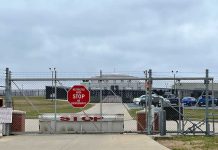
South Korea’s government faces critical challenges after President Yoon Suk-yeol’s impeachment, leaving Han Duck-soo to navigate regional stability and international alliances.
At a Glance
- President Yoon Suk-yeol was impeached for attempting to enforce martial law.
- Han Duck-soo assumes the role of Acting President to stabilize relations, especially with the U.S.
- The Constitutional Court ruling on Yoon’s impeachment will impact future governance.
- Public protests highlight the polarized national sentiment over Yoon’s actions.
Yoon’s Impeachment and Immediate Consequences
South Korea’s National Assembly impeached President Yoon Suk-yeol over allegations of trying to impose martial law, which sparked widespread public and political unrest. The move passed with a robust majority, including votes from within his own party. This represents only the third time in the nation’s history that a president has faced such a dismissal. With Yoon’s suspension, Prime Minister Han Duck-soo has stepped in as Acting President, seeking to navigate through this deeply volatile political landscape.
Large-scale protests have characterized the public response, urging immediate political reforms and raising questions about future security policies. The government’s immediate challenge lies in managing the fallout while maintaining a stable government apparatus. Yoon’s declaration of martial law on December 3 was perceived as a direct attack on democratic norms, propelling massive protests against his administration.
South Korea's opposition-led parliament impeached President Yoon Suk Yeol, suspending him from official duties over his short-lived attempt to impose martial law. Under the constitution, Prime Minister Han Duck-soo becomes acting president https://t.co/ukb8MDX2C7 pic.twitter.com/PD05HAP9d7
— Reuters (@Reuters) December 14, 2024
Han Duck-soo’s Role as Acting President
As Acting President, Han Duck-soo confirmed discussions with U.S. President Joe Biden, underscoring the enduring partnership and addressing North Korean provocations. Amid the instability, reassurance extends beyond national borders, crucially focusing on the South Korea-U.S. alliance. Han emphasized that “South Korea will carry out its foreign and security policies without disruption”. Thus, mitigating instability and aligning with international partners lie at the heart of governmental priorities.
The opposition leader, Lee Jae-myung, has shown willingness to collaborate with Han, advocating for the expedited decision by the Constitutional Court. Lee’s proposal for a cooperative policy council aims to ensure governmental operations proceed unhindered, maintaining continuity in governance and strategic policy-making processes.
Implications for Domestic and Foreign Policy
Yoon’s impeachment poses significant challenges to South Korea’s domestic politics and foreign policy stances. Democratic Party leader Lee Jae-myung stressed, “We’ve only just overcome a small mountain. There is a larger, steeper mountain ahead,” highlighting the ongoing struggle. Yoon’s actions and the response have reverberated across diplomatic channels, creating ripples of unease regarding the continuity and stability of South Korea’s international commitments.
The Constitutional Court has a six-month timeline to determine Yoon’s fate, which could lead to new elections. This protracted legal battle may further exacerbate existing tensions, affecting both societal and financial realms. South Korea’s financial markets have already felt the shockwaves, adapted to a precarious political environment. Ultimately, the government’s ability to maneuver through domestic challenges while maintaining strong international alliances remains critical in a region fraught with historical complexities and security concerns.
Sources:
- South Korean leaders seek calm after President Yoon’s impeachment
- South Korea’s President Impeached Over Martial Law Crisis
- As South Korean court takes up president’s impeachment, ruling party leader resigns







